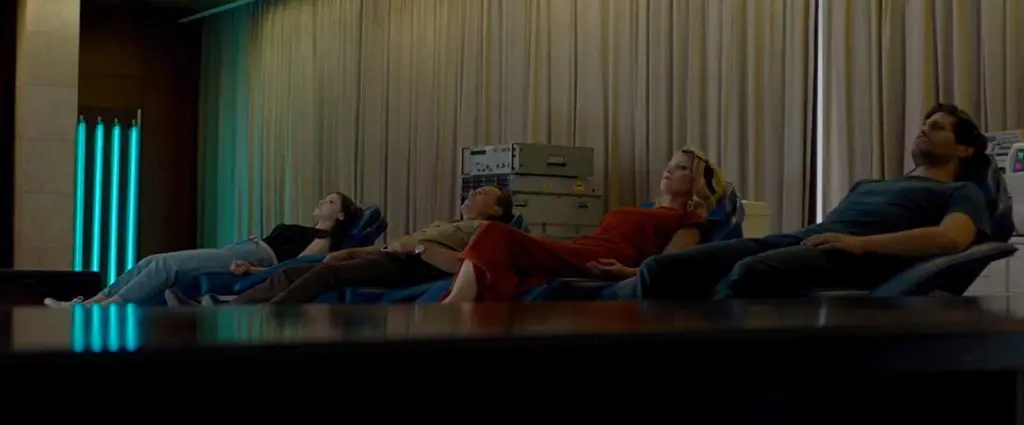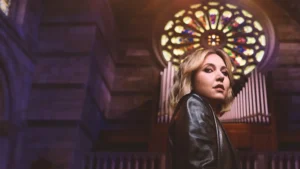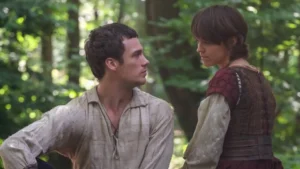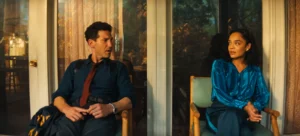Summary
Russian nightmarish horror about a young woman getting to grips with her brother’s death, from first-time director Pavel Sidorov: gripping at times and great to look at, but not a lot underneath.
Quiet Comes the Dawn (original title Rassvet) starts off with an incredible atmosphere: a pregnant woman escaping from something in the middle of a rainy night with hallucinations or ghosts or actual children (who knows!) crying to her. I was gripped. Then we move forwards twenty years to the birthday of the daughter she was carrying, Sveta (Alexandra Drozdova), and the film changes.
Sveta loses her beloved brother Anton (Kuzma Kotrelev) early in the film and – both baffled and traumatized – finds herself troubled by nightmares. These nightmares and Anton’s journals lead her to a somnology institute, where therapy is apparently applied via lucid dreams. She joins in a “cooperative lucid dream” with three others, ostensibly to aid each other with their problems… and then the film steadily becomes more surreal as they struggle to find their way out of the institute, or maybe out of their dream.
Once the group is all dreaming together, it’s natural to expect Freddy Kruger or similar to come hunting them; and there is talk of a “Dream Demon” at times. But none of the nasties they meet is quite that derivative, though some of the (granted, effective) jump scares may be. The dreamy, surreal tone of Quiet Comes the Dawn (and indeed the lab) reminded me more of the US TV series Falling Water; though actually it could have been more successful as a Channel Zero season. That might have required a more cohesive plot, though, which was rather too “light touch” in this film. Extending it to a suitable series could have given the characters the development they lacked: we saw hardly any of the grief Sveta apparently felt for her brother, and the other characters were two-dimensional at best.
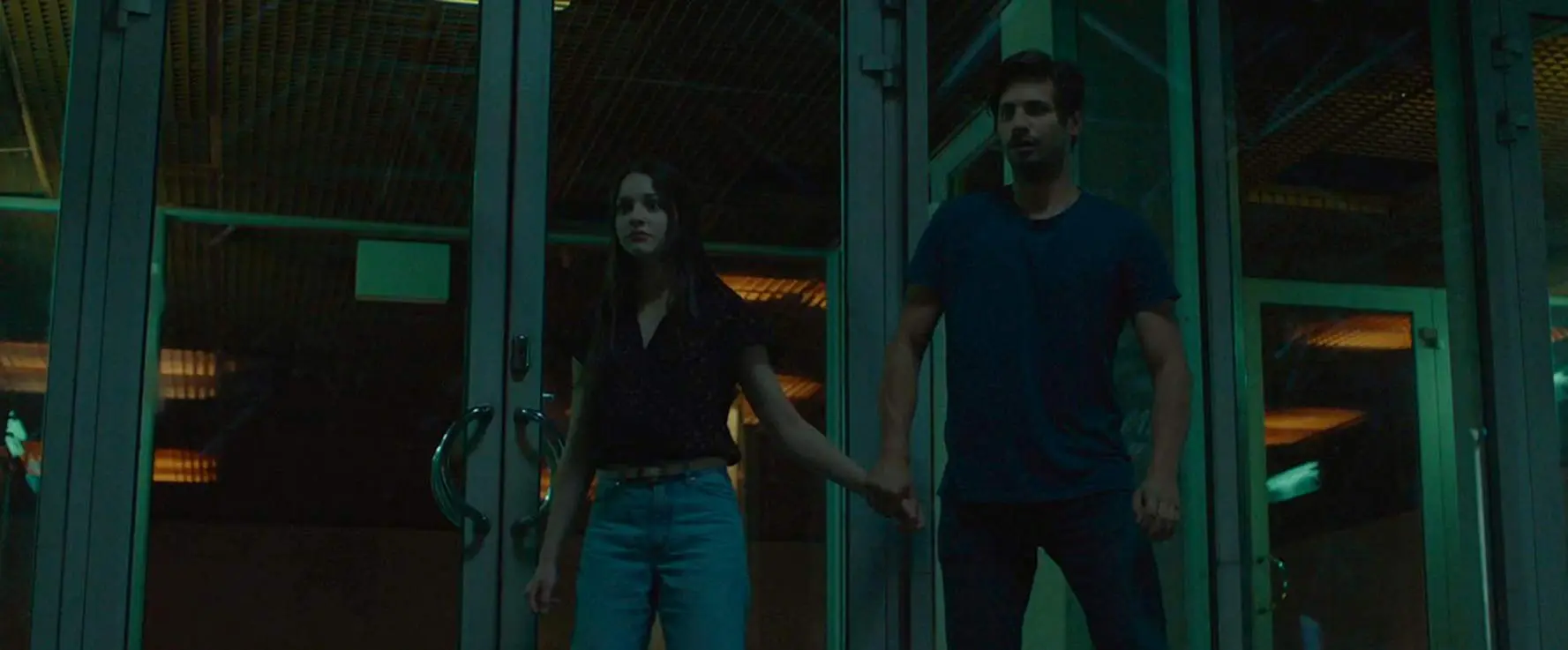
There lies the problem with Quiet Comes the Dawn: like the angel-faced characters, the film looks amazing but has little under the surface. It really does look amazing, and much of it does have the goose-pimply feel of a nightmare; the textures, colors and special effects all pulled me into what the group was experiencing… but I just didn’t feel any of it. What I did feel was Garry Judd’s music, though: often hypnotic, and frequently changing style with the bizarre scenes, the score added to the sense that I may have been sharing their dreams.
Writer Evgeny Kolyadintsev gives us a story made up of existing ideas, such as the “Dream Warriors” from Elm Street and a deceased mother involved with a cult, but I didn’t see much that was original. There is a nice idea of waking up from dreams in order to wake up from traumas or phobias in Quiet Comes the Dawn (though I have no idea how authentic it is), but like Sveta’s grief, it isn’t explored to any depth. The ending comes rather suddenly, with some sketchy explanation, making it a little unclear just how conclusive it is.
But you wouldn’t know this was director Pavel Sidorov’s first feature. Despite the characters and plot being so poorly sketched, he carries the film well from dramatic opening through crazy sets and horrible monsters and out the other side so well that I could easily see him making a film as successful as Silent Hill, say. Just not this time.

